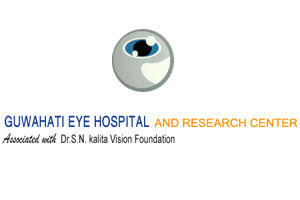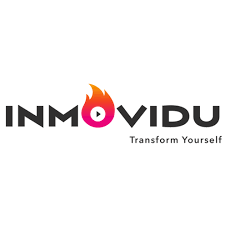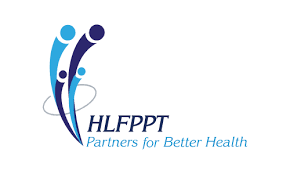











Read More
Master of Arts in Psychology at Assam down town University is a two-year program that focuses on translating psychological principles into practical solutions for real-world challenges. Students explore cognitive, developmental, organizational, health, community, clinical, research, and statistical aspects of psychology, gaining theoretical and practical skills. Emphasizing ethical standards and cultural sensitivity, the program prepares graduates for impactful roles in organizations and practical settings. It also serves as a foundation for those interested in further psychological research and practice studies.
Year wise Course Details
Courses for this semester
Personality psychology is a field focused on understanding the thoughts, feelings, behaviors, and social attitudes that create an individual's personality. This branch of psychology studies patterns of behavior that persist over time and how these traits distinguish individuals from one another.
Indian psychology aims to circumscribe what passes off as the discipline of psychology into a culturally located form: its primarily Western origin and environment. Foregrounding the need for situated knowledge, the course questions the relevance of psychology emanating primarily from West/Europe to Non-western and Non-European cultures, experiences, and psyches and attempts to look for resources for culturally sensitive psychology.
his course is designed to investigate the most recent findings in the area of physiological psychology. Topics of study will concern basic information about the nervous system, sensory systems, physiological bases of behaviours and the development of learning and memory.
Positive psychology is a field within psychology focused on the study of well-being, strengths, and positive attributes that enable individuals and communities to thrive. Instead of emphasizing dysfunction and pathology, positive psychology examines elements such as happiness, engagement, and fulfillment, exploring how individuals can lead meaningful and satisfying lives.
An internship for MA students provides advanced hands-on experience within their field of study, allowing them to integrate theory with professional practice. It focuses on developing specialized skills, enhancing research abilities, and fostering critical thinking essential for high-level roles. MA internships often include mentorship and networking opportunities
Co-curricular activities will equip the students to enhance and engage with various sections of the society and formulate agendas of social and cultural events, seminars, workshops, awareness programs etc. It will also allow them to participate in community matters.
The Fundamentals of Statistics course provides a comprehensive introduction to the essential principles and techniques of statistical analysis. Designed for students from various academic backgrounds, this course equips learners with the foundational knowledge and practical skills necessary to understand, interpret, and apply statistical methods in a wide range of fields.
Personality psychology is a field dedicated to studying individual differences in thoughts, emotions, and behaviors. It examines how personality forms and evolves, emphasizing unique characteristics that shape personal identity. Core theories include biological, psychodynamic, behavioral, humanistic, and trait approaches, each offering different insights into personality development and expression. Researchers in this field explore how personality influences interactions with others, decision-making, and coping mechanisms in various environments. Through these perspectives, personality psychology aims to understand and predict individual behavior and to uncover patterns that explain personal uniqueness
Courses for this semester
This course explores the principles of social psychology, examining how individuals think, feel, and behave in social contexts. Topics include social influence, attitude formation, prosocial behavior, interpersonal relationships, and group dynamics. Students will also apply social psychology to real-world issues like leadership, diversity, and environmental challenges.
This course provides foundational knowledge and skills in psychopathology, ethical principles, and psychological evaluation. Students will gain proficiency in assessing, diagnosing, and intervening in a range of mental health conditions, including anxiety, mood, substance use, schizophrenia spectrum, and neurodevelopmental disorders. Emphasis is placed on evidence-based and tailored intervention strategies.
This course provides an introduction to Industrial/Organizational Psychology, exploring its meaning, scope, and applications in organizational settings. Students will learn about personnel selection, training, job performance evaluation, work motivation, leadership, and organizational culture. Emphasis is placed on applying psychological principles to enhance employee performance, satisfaction, and innovation while managing organizational change.
This course offers foundational knowledge of research methods and methodology, equipping students with skills in data analysis and report/dissertation procedures. Emphasis is placed on synthesizing theoretical research knowledge for practical, day-to-day applications.
This course emphasizes the integration of theoretical knowledge with practical skills for working as a psychologist in multidisciplinary settings. Students will develop expertise in case history taking, mental status examination, and applying intervention techniques. The internship fosters continuous self-assessment and professional growth through hands-on experiences in real-world scenarios.
This course equips educators with the skills to design and deliver effective teaching sessions, applying adult learning principles and diverse educational methodologies. It emphasizes critical reflection on teaching practices, peer feedback, and collaborative learning to foster continuous improvement and teamwork. Participants will also develop strategies to assess learning outcomes and enhance communication and interpersonal skills in diverse classroom settings.
This course is designed to enhance students' abilities in reading, writing, communication, and interviewing, particularly as they apply to research and professional settings. Through a combination of theoretical instruction and practical application, students will develop key competencies that are essential for effective communication and critical analysis in the field of psychology and other related disciplines. The focus is on building skills that are applicable in both academic and professional contexts, emphasizing clarity, precision, and a deep understanding of the communication process.
This course is designed to enhance students' personal, social, and professional skills through active engagement in co-curricular activities. By participating in diverse activities, students will develop leadership, teamwork, creativity, and critical thinking while fostering a sense of social responsibility. The course integrates experiential learning, encouraging students to reflect on their personal growth and the impact of their contributions to their communities.
Courses for this semester
Psychometrics is a branch of psychology that focuses on the theory, techniques, and applications of psychological measurement. This course provides an in-depth understanding of the construction, validation, and use of psychological tests. It covers essential topics such as test reliability, validity, item analysis, and interpretation of test scores. Students will explore the applications of psychometrics in various fields, including education, clinical psychology, organizational psychology, and research. The course emphasizes ethical considerations in testing and equips students with the skills to develop and evaluate psychological instruments.
Counseling Psychology is a branch of psychology that focuses on facilitating personal and interpersonal functioning across the lifespan. It encompasses a broad range of practices aimed at helping individuals improve their well-being, alleviate distress, resolve crises, and increase their ability to function better in their lives. This course covers foundational principles, theories, and skills necessary for effective counseling practice. It also emphasizes ethical considerations, diversity, and evidence-based interventions to address various psychological issues.
Gender Psychology explores the roles, identities, and experiences of individuals in the context of gender. The course examines the biological, psychological, social, and cultural influences on gender development, expression, and inequality. Topics include the historical evolution of gender theories, intersectionality, gender norms and stereotypes, mental health and gender, and the global perspective on gender equality. This course encourages critical thinking, self-reflection, and research-based understanding to foster inclusivity and challenge biases.
Courses for this semester
This course explores the intricate relationship between human behavior and health, focusing on how psychological, social, and biological factors influence well-being. It delves into theories, research, and practical strategies for promoting healthy behaviors, managing chronic illnesses, and addressing mental health challenges. The course emphasizes the role of behavioral science in improving health outcomes and fostering a holistic approach to healthcare. Through interactive learning, case studies, and research projects, students will gain the skills and knowledge necessary to address contemporary health challenges using evidence-based psychological practices.
This course provides an in-depth understanding of the assessment, diagnosis, and management of psychological disorders in children and adolescents. It emphasizes evidence-based approaches to address developmental, emotional, and behavioral challenges faced by young individuals. Students will explore the role of biological, psychological, and social factors in shaping mental health and learn strategies for therapeutic interventions, family involvement, and preventive care. Through case studies, interactive discussions, and practical applications, this course equips students with the skills needed to support the mental well-being of children and adolescents in diverse settings.
The Workplace Counselling course is designed to equip students with the skills and knowledge necessary to support employees in managing personal and professional challenges within an organizational setting. It emphasizes the role of counseling in promoting mental health, enhancing employee well-being, and fostering a positive work environment. Through the study of counseling techniques, workplace dynamics, and ethical considerations, students will gain practical expertise in addressing workplace stress, conflict resolution, career guidance, and emotional well-being.
This course focuses on the principles and practices of supporting individuals with disabilities, mental health challenges, or social disadvantages to reintegrate into their communities and lead fulfilling lives. It emphasizes a holistic and inclusive approach to rehabilitation, addressing the psychological, social, and cultural aspects of recovery. Students will explore strategies for advocacy, empowerment, and community-based interventions, learning to work collaboratively with individuals, families, and organizations. The course equips students with the skills to promote resilience, independence, and societal inclusion for marginalized populations.

CST- Common scholarship test is a national and international level online MCQ based examination funded for intellectual empowerment by Assam down town University.
CST- Maximum enrolment each year is 269 seats and any 10+2 students can apply. Adtu is northeast India’s first placement driven university to provide 100% scholarship benefits worth 30 cr.
CST aims to inspire brilliant and competent students to pursue further education. Accredited with a prestigious grade by NAAC, UGC and AICTE.
Explore more scholarships that can help you reach out your goal with financial aid.
This scholarship is valid on the basis of the board/university examination
| 95% & above | 100% Scholarship on all semester |
| 90%-94.9% | 50% Scholarship on all semester |
| 80%-89.9% | 25% Scholarship on all semester |
This scholarship is valid on the basis of the board/university exam
| National & International Level | 100% Scholarship on all semester |
| State Level | 50% Scholarship on all semester |
| District Level | 25% Scholarship on all semester |
This scholarship is valid on the basis of the board/university exam
| National & International Level | 100% Scholarship on all semester |
| State Level | 50% Scholarship on all semester |
| District Level & NCC Certificate Holder | 25% Scholarship on all semester |
Discover a multitude of world-class amenities and cutting-edge resources at Assam down town University, enhancing your academic journey to new heights.
The Start-Up & Incubation Centre at Assam down town University provides a supportive environment for young entrepreneurs to develop and grow their business ideas. The center provides mentorship, funding, and networking opportunities to help innovative ideas become successful businesses.
SFURTI scheme to support rural entrepreneurs and innovators, an initiative by the Ministry of MSME
TIDE 2.0 scheme for ICT-based startups which provides a grant of Rs. 4L and Rs. 7L under EiR and Grant categories respectively, an initiative by the Ministry of MeitY.
dtVL Ideation, an incubation program for early-stage entrepreneurs with a market-ready solution/product, offering interest-free loans up to Rs. 2 lakhs.
Sprout UP, an incubation program for students, faculties, and researchers with innovative business ideas, prototypes, or technology solutions.





.png)












































"I am a BBA student of 3rd semester. I hail from Bhutan. I vow that I am having a great experience i...
"AdtU is amazing. I am a BBA student of 2019-22 batch and I am just grateful for the amount of oppor...
Let us be grateful to the people and place who makes us happy. They are the charming gardeners whom ...
Currently I am pursuing MBA in Assam Down Town University. MBA is the professional course through wh...
AdtU is a university that focuses on giving knowledge, education and simultaneously making the stude...
The Assam downtown University has been a great learning experience. The university has provided me w...
My experience with AdtU has been splendid one indeed. Little needs to said about its scenic infrastr...
As a student I am very glad that I have got an opportunity to study here in Assam downtown universi...
My name is Sakhyajit Roy. I?m from Tripura. I joined the university on Auguest, 2017 as a student of...
I share immense pleasure to share my post graduate program experience in Assam down town University....
AdtU is a platform where I got golden opportunities to feed my zeal for knowledge through the dynami...
I am fortunate to get an opportunity to study here in Assam Downtown University. The best thing abou...
Our university is one of the best place for developing ourselves in the field of research and acedem...
ADTU is a university that is very good interms of infrastructure, academics and placements. Our tea...
It is one of best private colleges in North East India, it also provides a good environment for ed...
ADTU is a good University which provides the students with best quality lectures and ensures comfort...
The environment of Assam downtown university is very pleasant.The department of BMLT is very good a...
The university has all the necessary facilities and amenities for students . The classrooms and the ...
Assam downtown University is well recognised all over india. In the ongoing pandemic situation it ha...








